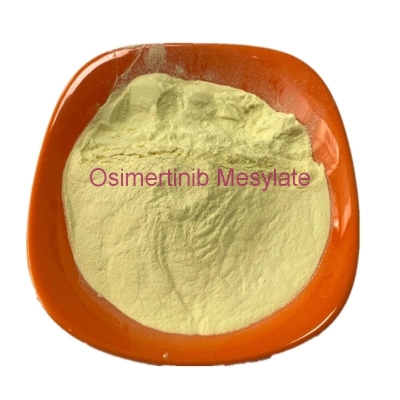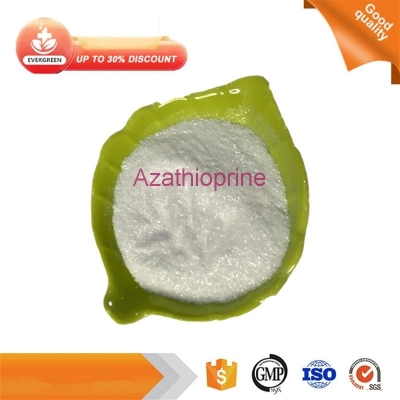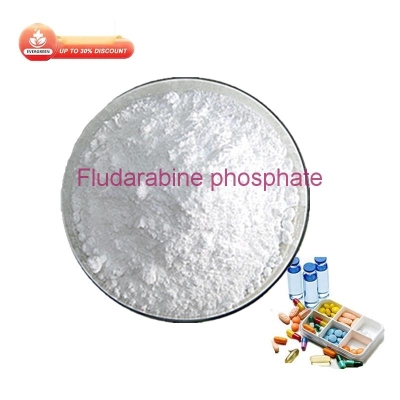-
Categories
-
Pharmaceutical Intermediates
-
Active Pharmaceutical Ingredients
-
Food Additives
- Industrial Coatings
- Agrochemicals
- Dyes and Pigments
- Surfactant
- Flavors and Fragrances
- Chemical Reagents
- Catalyst and Auxiliary
- Natural Products
- Inorganic Chemistry
-
Organic Chemistry
-
Biochemical Engineering
- Analytical Chemistry
- Cosmetic Ingredient
-
Pharmaceutical Intermediates
Promotion
ECHEMI Mall
Wholesale
Weekly Price
Exhibition
News
-
Trade Service
*For medical professionals only
Toad has both anti-tumor and anti-hepatitis B virus effects, significantly reducing the recurrence of liver cancer after surgery and prolonging the long-term survival
of patients.
In order to ignite the light of life for more liver cancer patients, for a long time, countless doctors have worked hard to move forward, their steps have never stopped, and their benevolence has never changed
.
As a traditional treasure of the Chinese nation and an important weapon for anti-tumor treatment, traditional Chinese medicine has also played an irreplaceable role in the fight against liver cancer, bringing the "dawn" of life to countless patients
.
Liver cancer is the sixth most common cancer in the world, with about 905,000 new cases per year, and the death rate of liver cancer is the third highest in the world, with about 830,000 deaths per year
.
China's liver cancer disease burden is particularly heavy, accounting for about half
of the world's incidence and deaths.
Although the treatment of liver cancer is endless, patients with liver cancer still face a high risk
of recurrence after surgery.
How can I effectively reduce the risk of recurrence of liver cancer after surgery? What is the value of traditional Chinese medicine or integrative medicine in reducing the recurrence of liver cancer after surgery? The "Medical Oncology Channel" invited Professor Weidong Jing from the First Affiliated Hospital of University of Science and Technology of China and Professor Song Tianqiang from Cancer Hospital of Tianjin Medical University to share their years of experience and feelings
in the diagnosis and treatment of liver cancer.
Postoperative recurrence - the biggest difficulty in the current treatment of liver cancer
"The treatment of liver cancer is already very rich
.
" Professor Weidong pointed out, "In addition to surgical treatment (liver resection, liver transplantation), it also includes ablation therapy (radiofrequency ablation therapy, microwave curing therapy, etc.
), local interventional therapy [transcatheter arterial chemoembolization (TACE), hepatic artery catheterization continuous chemotherapy perfusion (HAIC)], molecular targeted therapy, immunotherapy, systemic chemotherapy, and traditional Chinese medicine treatment
represented by Chinese toadin.
”
However, so far, liver resection is still an important means
for long-term survival of liver cancer patients.
And with the advancement of surgical technology and systematic anti-tumor treatment, the proportion of resectable liver cancer is getting higher and higher, bringing hope for long-term survival to more patients
.
However, the high recurrence rate after surgery is still a non-negligible problem, which seriously affects the long-term prognosis
of patients.
"In fact, the biggest difficulty in treating liver cancer is recurrence
after surgery.
For liver cancer, the overall recurrence rate in 5 years can reach 70% or even 80%.
Even for early small liver cancer, the recurrence rate in 5 years is nearly 50%.
Therefore, controlling the postoperative recurrence of liver cancer is a very key issue
to improve the overall treatment effect of liver cancer.
Professor Song Tianqiang introduced
.
Professor Song Tianqiang pointed out: "Liver cancer is divided into early recurrence and late recurrence according to the recurrence time, of which early recurrence is generally defined as recurrence within two years after surgery, mainly caused by the biological behavior of the tumor itself, such as medium and low differentiated tumors, multiple tumors, micronodules, vascular invasion, large tumors, etc.
, which are all high-risk factors
for early recurrence.
Late relapse is defined as relapse after two years and is more associated
with background liver disease.
80% or even 90% of liver cancer patients in China have a history of hepatitis, especially hepatitis
B or C.
These background liver diseases progress to cirrhosis, which then becomes
cancerous on this basis.
Therefore, even if the tumor is removed, the hepatitis virus still exists, the background of cirrhosis remains, and on this basis, the sclerotic nodule may become
cancerous.
To prevent relapse, we need to take targeted treatment measures for different risk factors
.
”
Liver cancer in China is mostly caused by hepatitis,
Some Chinese medicines have both anti-tumor and anti-hepatitis B virus effects, and the advantages of preventing recurrence are prominent
How to reasonably choose postoperative adjuvant treatment to reduce the risk of postoperative recurrence and prolong survival has become a hot spot and difficult point in clinical practice
.
As a traditional treasure of the Chinese nation, traditional Chinese medicine has brought a new dawn to reduce the risk of recurrence of liver cancer after surgery
.
Professor Weidong Jing said that the domestic multi-center study led by Academician Chen Xiaoping confirmed the effect of Sophora granules in preventing recurrence and metastasis after early liver cancer, and there were also data showing that Chinese toad can reduce the risk of
recurrence and metastasis after surgery.
In addition, clinical studies based on target-free combination protocols are currently being carried out, which is worth looking forward to
.
Professor Weidong pointed out that some Chinese medicines can improve the prognosis
of liver cancer patients by integrating existing multidisciplinary treatment methods, including combined TACE therapy, combined targeted therapy and immunotherapy.
Traditional Chinese medicine can reduce the symptoms of patients in the process of treatment, reduce the adverse reactions of interventional therapy and targeted combination therapy, maintain liver function, improve the quality of life of patients, and accelerate the recovery
of patients.
"Therefore, whether it is monotherapy or combination therapy, traditional Chinese medicine has the potential to improve the current treatment effect in the field of liver cancer recurrence and metastasis, so that our patients can obtain better quality of life and better recovery
.
"
So why can traditional Chinese medicine be used to reduce the risk of recurrence of liver cancer after surgery? As Professor Song Tianqiang introduced, the occurrence of liver cancer in China and the West is different, hepatitis virus, especially hepatitis B virus, is the main cause of liver cancer in China, so hepatitis B virus control and antiviral therapy should run through the treatment of liver cancer
.
Some Chinese medicines have potential advantages
in anti-hepatitis B virus and prevention of liver cancer recurrence and metastasis.
"The mechanism of action of Chinese medicine itself may be different from that of Western medicine
.
Western medicine basically uses a very direct method, such as targeted drugs, and if the patient has a clear therapeutic target, drugs that inhibit this target are used
.
The composition of traditional Chinese medicine itself is relatively complex, and the mechanism may also be reflected in many aspects
.
Like Hua Toadin, on the one hand, it has anti-tumor effects; On the other hand, some previous studies have shown that it also has a certain anti-hepatitis B virus effect [4].
So its therapeutic effect may be a superposition
of many factors.
This also reflects that Chinese medicine itself is more from the whole of the body, rather than from the part of a disease
.
In addition, traditional Chinese medicines, especially proprietary Chinese medicines, may have fewer side effects than Western medicines, and are more acceptable
to Chinese patients.
”
Specifically, from the perspective of mechanism of action, Chinese toad can block the cell cycle in the S phase and reduce the proliferation ability of hepatoma cells; Apoptosis in human liver cancer HepG2 cells is induced through mitochondrial pathway; and down-regulation of vascular endothelial growth factor expression and inhibition of tumor angiogenesis[1-3].
At the same time, Chinese toad can significantly inhibit the expression of hepatitis B surface antigen (HBsAg), hepatitis B e antigen (HBeAg), and hepatitis B core-related antigen (HBcrAg)[4].
These mechanisms bring multiple advantages
to the use of Chinese toad in preventing postoperative recurrence of liver cancer.
Toad is effective in preventing the risk of recurrence of liver cancer after surgery, and has been supported by evidence-based medical evidence and recommended by authoritative guidelines
"At present, the efficacy of traditional Chinese medicine in postoperative adjuvant therapy for liver cancer is certain, especially in the combination of traditional Chinese and Western medicine
.
Traditional Chinese medicine represented by Chinese toadin, whether monotherapy or combination therapy, has been confirmed by small clinical studies that can prevent recurrence and metastasis
of liver cancer after surgery.
Professor Weidong pointed out
.
A multicenter, prospective, randomized controlled study of 364 patients with small hepatocellular carcinoma from Shanghai Changhai Hospital, Shanghai University of Traditional Chinese Medicine, Shanghai Oriental Hepatobiliary Hospital, Zhongshan Hospital Affiliated to Fudan University, and the First Affiliated Hospital of Guangxi Medical University were included, of which 184 received TACE and 180 received traditional Chinese medicine (including Chinese toad and oral detoxification granules), comparing the recurrence rate of
liver cancer patients in the two groups.
The results showed that the Chinese toad group significantly reduced the recurrence of liver cancer and prolonged the long-term survival of patients after liver cancer compared with the TACE group [5].
Specifically:
Median recurrence-free survival (RFS) was longer in the wartoad group (85.
83 months vs.
26.
00 months, P<0.
001);
The recurrence rates of 1, 2, 3, 4 and 5 years in the Chinese toad group and TACE group were 21.
11% vs.
35.
32%, 36.
67% vs.
50.
54%, 46.
67% vs.
59.
24%, 50.
56% vs.
64.
13% and 54.
44% vs.
69.
57%,
respectively.
The overall survival (OS) rates of 1, 2, 3, 4 and 5 years in the Chinese toad group and TACE group were 91.
11% vs.
86.
41%, 84.
44% vs.
79.
89%, 77.
78% vs.
72.
28%, 75.
56% vs.
67.
39% and 71.
11% vs.
63.
04%,
respectively.
In addition, the incidence of adverse reactions in the Chinese toad group was significantly lower than that in the TACE group (35.
14% vs.
51.
05%, P=0.
002).
"There was a statistically different rate of postoperative recurrence between the two groups
.
This is also the main basis for the "Guidelines for the Diagnosis and Treatment of Primary Liver Cancer (2022 Edition)" to recommend the use of Chinese toad for the prevention of recurrence after liver cancer surgery.
Professor Song Tianqiang pointed out
.
In addition, a randomized, double-blind, placebo-controlled multicenter clinical study
evaluating the efficacy and safety of hepatic R0 resection combined with Chinese toad tablets in the treatment of primary hepatocellular carcinoma (HCC) was conducted by Tianjin Medical University Cancer Hospital and 20 centers nationwide.
The study included 304 postoperative patients with liver cancer at high risk of recurrence, respectively with Chinese toad tablets and placebo
.
The study began in 2013, patient enrollment has ended, and the primary endpoint has not yet been met and is
ongoing.
However, from the preliminary analysis results, the efficacy of the Chinese toad tablet group in preventing recurrence was better than placebo
.
”
Explore the road with Chinese characteristics and allow more liver cancer patients to benefit from the comprehensive multidisciplinary treatment of traditional Chinese and Western medicine
Professor Weidong Jing said that liver cancer faces the problems
of recurrence and metastasis and poor quality of life after surgery.
Adjuvant therapy with integrated traditional Chinese and Western medicine is the key to ensuring the
long-term survival of liver cancer patients.
The current overall survival rate for liver cancer is 14.
1%.
According to the requirements of the national "Healthy China 2030" outline, the 5-year survival rate of liver cancer by 2030 should be increased by another 15%
on the existing basis.
Therefore, in the future, we should explore different integrated TCM treatment options based on the multidisciplinary comprehensive treatment model, help achieve the goal of "Healthy China 2030", reduce liver cancer recurrence and metastasis, improve the long-term survival of patients, improve the effect of surgical treatment, and let more Chinese liver cancer patients benefit from the comprehensive multidisciplinary treatment
of Chinese and Western medicine.
Professor Song Tianqiang also pointed out that Chinese medicine is a unique weapon of Chinese, and it is also our advantage, and in the future, we should explore ways of reasonable combination of Chinese medicine and Western medicine, such as combination or sequential, different combinations, etc.
, to provide evidence-based medical evidence support for clinical treatment, and then benefit more patients
.
Professor Weidong Pod
Department of Liver Surgery, The First Affiliated Hospital of University of Science and Technology of China
Chief physician, professor, doctoral supervisor
Member of the International Association of Liver Cancer / Member of the International Hepatobiliary and Pancreatic Association
Vice Chairman of the Accelerated Rehabilitation Surgery Professional Committee of the China Branch of the International Hepatobiliary and Pancreatic Association
Member of the National Health Commission's Capacity Building and Continuing Education Oncology Committee
Member of the Liver Cancer Quality Control Expert Committee of the National Cancer Center
Member of Hepatology Group of Surgical Branch of Chinese Medical Association
Member of the Liver Cancer Group of the Oncology Branch of the Chinese Medical Association
Member of the Liver Cancer Group of the Hepatology Branch of the Chinese Medical Association
Member of the Liver Surgery Group of the Surgeon Branch of the Chinese Medical Doctor Association
Member of the Liver Cancer Professional Committee of the Chinese Anti-Cancer Association
Member of the Standing Committee of the Liver Cancer Professional Committee of the Chinese Medical Doctor Association and Chairman of the Intelligent Diagnosis and Treatment Committee
Member of the Standing Committee of the Liver Cancer Expert Committee of the Chinese Society of Clinical Oncology
Chairman of the Liver Cancer Professional Committee of Anhui Anti-Cancer Association
Vice Chairman of the Surgical Branch of Anhui Medical Association and leader of the Hepatobiliary and Pancreatic Surgery Group
Editorial board member of Chinese Journal of Surgery, Chinese Journal of Digestive Surgery, Chinese Journal of Hepatobiliary Surgery, Chinese Journal of General Surgery, World Journal of Chinese Digestion, Journal of Practical Hepatology, Journal of Clinical Surgery, Journal of Organ Transplantation, Journal of Abdominal Surgery, Progress in Modern Chinese General Surgery, International Journal of Surgery, etc
Professor Song Tianqiang
Cancer Hospital of Tianjin Medical University
Executive Director of Liver Cancer Prevention and Control Research Center, Cancer Hospital of Tianjin Medical University, Director of Department of Hepatobiliary Oncology, Chief Physician, Dr
Member of the Research Committee of the International Hepatobiliary and Pancreatic Association (IHPBA).
Member of the Standing Committee of the Oncology Branch of the Chinese Medical Association
Vice Chairman of the Hepatobiliary Professional Committee of the Physician Branch of the European and American Alumni Association
Vice Chairman of the Hepatobiliary Committee of the Bethune Foundation
Vice Chairman of the Hepatobiliary Tumor Professional Committee of Beijing Asia-Pacific Liver Disease Diagnosis and Treatment Technology Alliance
Member of the Standing Committee of the Biliary Tract Committee of the Chinese Branch of the International Hepatobiliary and Pancreatic Association
Member of the Standing Committee of the MDT Special Committee of the China Branch of the International Hepatobiliary and Pancreatic Association
Member of the Standing Committee of the ERAS Special Committee of the China Branch of the International Hepatobiliary and Pancreatic Association
Member of the Standing Committee of the Digestive Surgery Professional Committee of China Research Hospital
Member of the Standing Committee of the Hepatobiliary and Pancreatic Surgery Professional Committee of the Cross-Strait Medical and Health Exchange Association
Member of the Standing Committee of the Surgical Oncology Branch of the Chinese Medical Doctor Association
Member of the Liver Cancer Professional Committee of the Chinese Anti-Cancer Association
Chairman of the Liver Cancer Professional Committee of Tianjin Anti-Cancer Association
References:
[1].
Wu Q, Lin WD, Liao GQ, et al.
Antiproliferative effects of cinobufacini on human hepatocellular carcinoma HepG2 cells detected by atomic force microscopy.
World J Gastroenterol.
2015 Jan 21; 21(3):854-61.
[2].
Qi F, Li A, Zhao L, Xu H, et al Cinobufacini, an aqueous extract from Bufo bufo gargarizans Cantor, induces apoptosis through a mitochondria-mediated pathway in human hepatocellular carcinoma cells.
J Ethnopharmacol.
2010 Apr 21; 128(3):654-61.
[3].
Yin JH, Zhu XY, Shi WD, et al.
Huachansu injection inhibits metastasis of pancreatic cancer in mice model of human tumor xenograft.
BMC Complement Altern Med.
2014 Dec 13; 14:483.
[4].
Cui X, Inagaki Y, Xu H, et al.
Anti-hepatitis B virus activities of cinobufacini and its active components bufalin and cinobufagin in HepG2.
2.
15 cells.
Biol Pharm Bull.
2010; 33(10):1728-32.
[5].
Zhai XF, Liu XL, Shen F, et al.
Traditional herbal medicine prevents postoperative recurrence of small hepatocellular carcinoma: A randomized controlled study.
Cancer.
2018 May 15; 124(10):2161-2168.







